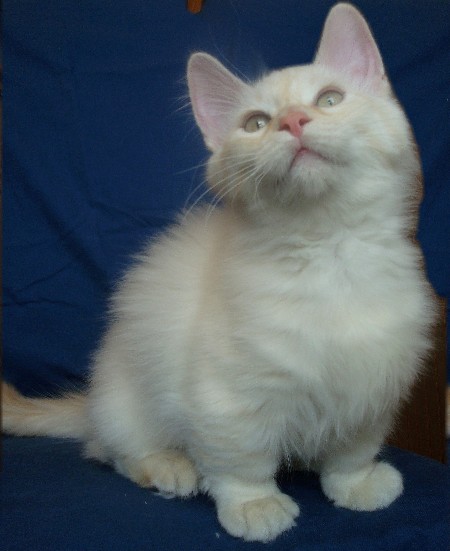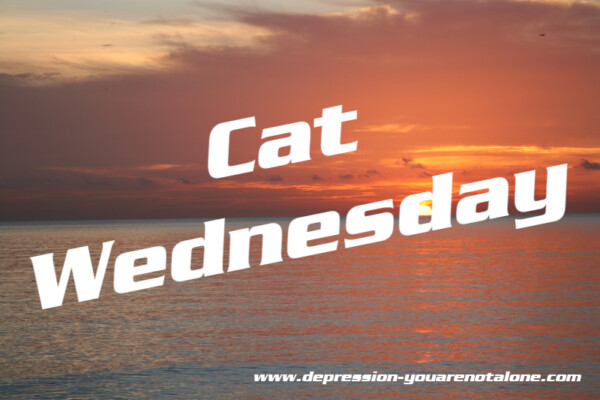Cat Wednesday 2023-07-19
Having cats as pets can be a great source of companionship and comfort. Not only do cats provide unconditional love and affection, but they can also help improve your mental health. Studies have shown that having cats as pets can reduce stress levels, lower blood pressure, and even increase feelings of happiness and well-being. Cats can also help us feel more connected to nature, as they are an important part of the natural world. In addition to providing physical and mental health benefits, cats can also bring joy into our lives with their playful personalities and amusing antics. By providing us with companionship, comfort, entertainment, and relaxation, having cats as pets is an excellent way to enhance our lives and improve our mental health. – Editorial Team
.
Munchkin
By Editorial Team

Sg0668commons, CC BY 3.0, via Wikimedia Commons
The Munchkin cat breed is a unique and controversial breed known for its short legs. In this detailed discussion, we’ll explore various aspects of the Munchkin cat breed, including its history, appearance, temperament, health considerations, and the controversies surrounding it.
History: The Munchkin cat breed originated in the early 1990s in Louisiana, United States. It was named after the little people in L. Frank Baum’s “The Wonderful Wizard of Oz” due to its short-legged appearance. The breed’s foundation cat, a stray with short legs named Blackberry, gave birth to a litter of kittens, some of whom also possessed the short leg trait. The breed was then developed by breeding these short-legged cats to other domestic cats.
Appearance: The defining feature of the Munchkin cat breed is its short legs. The shortness of the legs is caused by a genetic mutation known as achondroplasia, which affects the long bones of the legs. Despite the short legs, Munchkins have a well-developed musculature and a proportionate body. They come in various coat lengths, colors, and patterns, as they can be both short-haired and long-haired. Munchkins are medium-sized cats with a weight range of 5 to 9 pounds (2.3 to 4.1 kilograms).
Temperament: Munchkin cats are known to be sociable, friendly, and outgoing. They are generally playful and enjoy interactive activities with their owners. Munchkins are often described as intelligent and curious cats that love to explore their surroundings. They tend to get along well with other pets and children, making them suitable for families. Munchkins are also known to be vocal and may engage in frequent meowing or chirping to communicate with their owners.
Health Considerations: One of the main concerns associated with the Munchkin cat breed is the potential for health issues related to their short legs. The genetic mutation responsible for their short stature is the same one found in certain dog breeds, such as the Dachshund and Corgi, which are prone to skeletal problems. Munchkins can experience joint and spine problems, including lordosis (excessive curvature of the spine) and pectus excavatum (abnormal chest bone formation). Responsible breeders prioritize the health of their cats and take measures to avoid breeding cats with severe health issues.
Controversies: The Munchkin cat breed has sparked controversies within the feline community. Critics argue that breeding cats with intentionally short legs raises ethical concerns and can perpetuate health problems. They believe it is an example of unethical breeding practices that prioritize appearance over the well-being of the animal. Several cat welfare organizations, including the Cat Fanciers’ Association (CFA) and The International Cat Association (TICA), initially refused to recognize the Munchkin breed due to these concerns. However, other organizations, such as the Dwarf Cat Association (TDCA), support the breed and argue that responsible breeding practices can ensure the health and well-being of Munchkins.
Responsible Breeding: It’s important to note that responsible breeders of Munchkin cats take measures to minimize potential health risks. They ensure that breeding cats are screened for skeletal issues and only mate those without severe health problems. Additionally, responsible breeders prioritize the overall health and well-being of their cats by providing them with proper veterinary care, regular exercise, and a suitable environment.
In conclusion, the Munchkin cat breed is known for its distinctive short legs, which have generated both admiration and controversy. While their appearance is undeniably unique, it’s crucial to consider the potential health concerns associated with the breed. Responsible breeding practices can help mitigate these risks and ensure the overall welfare of Munchkin cats.

